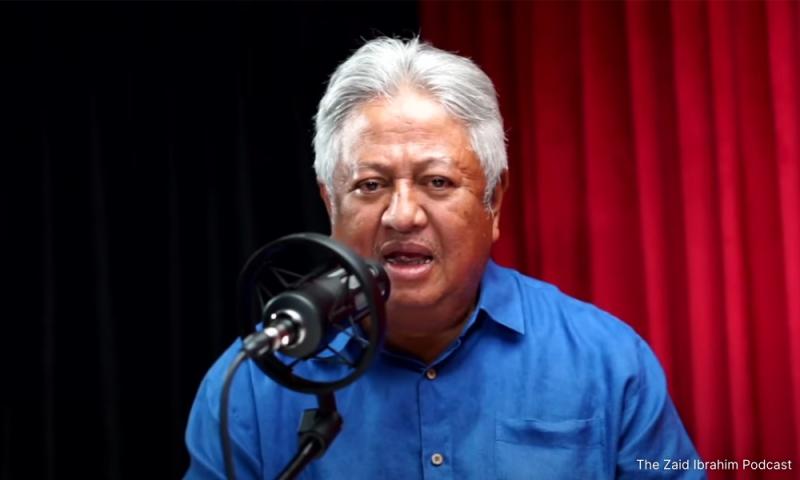The ambiance in Malaysia in April 2012 is both celebratory and festive due to the recent policy changes pertaining to Malaysian's civil and political rights; and yet there is a strong sense of scepticism and mistrust at the ground level among the civil society movements, opposition politicians and the general population.
The general population's feeling denotes a strong awareness that that this year possesses a crucial landmark in our nation's history, as the concepts of participatory and parliamentary democracy are being negotiated and boundaries of civil and political rights are being rebranded, redesigned and rehashed in light of the impending general elections rumoured to be held in June 2012.
The stakeholders who are active in this negotiation for democracy are the political parties from both side of the divide, the ever growing civil society movements like Bersih, NGOs and the young adult population (gen X and Y), all of whom have a crucial say on how this political drama unfolds.
This mixed feelings and confused euphoria is justified.
The Malaysian federal government under the leadership of Premier Najib Abdul Razak, has been in the forefront of bringing about certain positive changes which caused some initial euphoria.These include;
1. The affirmation and acceptance of the resignation of a minister whose reputation had been tarnished by a billion dollar ringgit feedlot scandal;
2. The support for certain reforms in electoral laws and policy via the Parliamentary Select Committee findings (most of which were initially mooted by the Bersih 2.0 movement which was initially deemed illegal by the federal government in 2011)
3. The recognition and legitimising of the Bersih 3.0 rally on April 28 th ; and
4. The repealing of the infamous Internal Security Act which legitimised detention without trial of suspects.
However it is no surprise that this noble move and message from the federal government that it seemingly has adopted tolerance for open and sincere debate is questioned by the masses who view new found democratic faith with scepticism and mistrust.
The reason for this negative perception is clear, this is because the proposed legislative reforms introduces new draconian offences which are laden with uncertainty, it is also introduced new concepts without much debate, laden with preconditions and more importantly it has not shifted or enlarged the notion and the concepts of parliamentary / democratic participation as it were before.
Simply put, the current position is very draconian and is targeted to regulate and curtail the use of the internet and social-media participation in advancing participation in democracy and calling for accountability of governance.
‘The Devil lies in the details' and with social media, a rampant cyber-democracy and informed voters these details are being elucidated and discussed in the Internet and social media notwithstanding the ‘blackout' from government controlled mainstream media.
One of the main critiques lies with the repealing of the Internal Security Act and the introduction of the proposed Security Offences bill 2012 and the Amendments of the Criminal Procedure Code and the Penal Code, which allows for a whole new array of offences relating to political activities that affect the concept ‘of parliamentary democracy'.
Sadly this concept is not clearly defined. The unintended consequence of these proposed reforms also seems to curtail and censor the use of a free and uncensored internet, which reneges from a promise and guarantee made by the government in the 1990s to ensure the unfettered use of an uncensored internet.
It is also rather disappointing to note that notwithstanding that the building blocks of a healthy, vibrant and modern democracy is built on freedom of speech, expression and association, the proposed legislation seem to curtail these very rights that are needed for a healthy democracy.
A cumulative reading of these bills indicates that the government has no serious interest in facilitating open debate especially since there is no accountability in the bodies empowered to administer and enforce these legislation.
Also, the bill strengthens and empower authorities to legitimately snoop in cyber-space targeted at social media which are the key tools used by the civil society movements to engage and debate about the future of democracy in Malaysia.
Perhaps this is not the intent of our policy makers, or perhaps due to poor communication; the government's noble and good intentions have gone unnoticed and misconstrued.
But as the saying goes; ‘the road to hell is paved with good intentions'. Therefore it is suggested that clarity is the only solution for this dilemma.
While it is understood that that a variety of factors that need to be taken in to consideration in safeguarding our democracy, that no freedom is absolute and that every citizens has a duty to exercise their rights within the law or social norms, it is noted that there is an equally important and trite concept that regulations and policy introduced by the executive that impede, curtail and regulate fundamental freedoms of expression, speech and association of citizens needs to be crystal clear, applied with careful considerations of judicial overview and strict adherence to evidential procedure and respect of court rules and norms.
This core respect of the use of executive power and its limits on the citizens needs to be ‘jealously guarded'preserved and maintained, no matter what the cost.
The reason for this absolutism is crucial because, if we as a society allow such changes and reform to go unchecked; our society's adherence and respect of an accountable and responsible government and respect to the rule of law is at risked of being dissipated.
For the sake of our nation, it is suggested and reiterated tihat the politicians and policy makers from both side of the political divide restudy and debate these proposed legislations wth candour and care, minus the unnecessary politicking and also take in to account the public comments rather than hastily pass the legislation through parliament.




